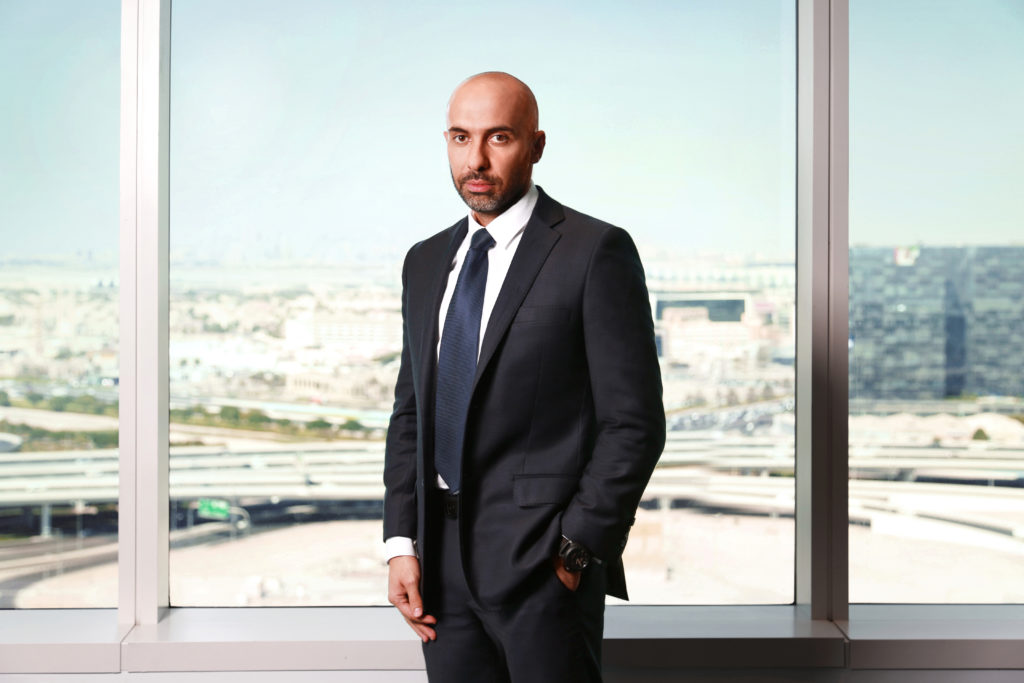Arada, Sharjah-based master developer co-founded by Chairman HE Sheikh Sultan bin Ahmed Al Qasimi and Vice Chairman HRH Prince Khaled bin Alwaleed bin Talal Al Saud, was one of the largest stands at this year’s Cityscape Global staged at the Dubai World Trade Centre. CBNME sat down with the company’s Chief Executive Officer, Ahmed Alkhoshaibi, to discuss the construction progress being made across Arada’s two communities, property sales, sustainability, and the value of real estate in the UAE.
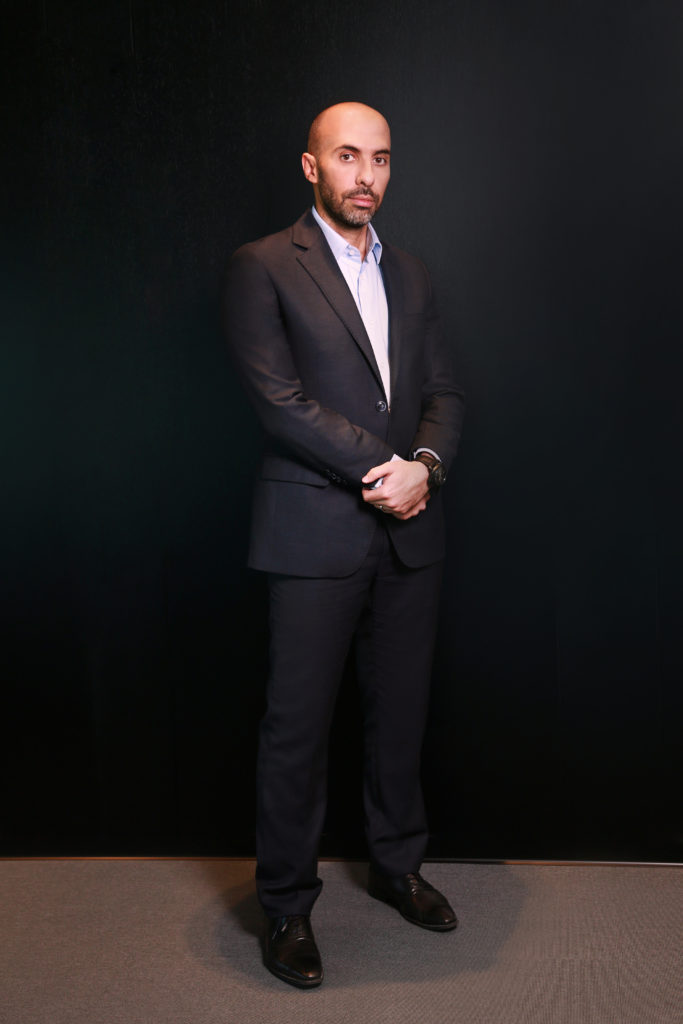
What is the current status of Aljada and how much has been completed so far?
We began construction on Aljada last year, and are now hard at work at a number of locations around the site. It’s worth bearing in mind that Aljada is one of the largest construction projects anywhere in the Gulf, and certainly the largest in Sharjah. Spread over a 24 million square foot area, the Aljada master plan involves extensive residential, commercial, leisure, hospitality, education and healthcare elements, so it is also one of the most complex projects in the region. Building such a large and complex ‘city within a city’ takes time, and we anticipate that construction on Aljada will take around 10 years to complete.
We broke ground on the first phase of Aljada in April last year, and are currently working hard to deliver our first homes in the first quarter of 2020. To give you some idea of Aljada’s size and scale, it’s worth bearing in mind that this first phase alone contains over 1,400 units, spread over 14 apartment blocks and a townhouse community.
What are some of the major attractions of Aljada’s Central Hub?
The first part of Aljada to be completed will actually be the first phase of the Central Hub, a new entertainment and leisure district, which has been designed by Zaha Hadid Architects. We believe that for Aljada to be successful, we need to attract visitors from all over the UAE and beyond, and having focal points such as the Central Hub will certainly help us to achieve that goal.
The first phase of the Central Hub, which is scheduled to open in the fourth quarter of this year, will feature Arada’s experiential sales centre, alongside a food truck zone, a children’s play area, a community events space and a full calendar of events and activities.
Other attractions that Arada will bring in in later phases include a ‘waterplay area’; an extreme sports centre; a giant adventure golf course; and a large family-focused ‘edutainment’ complex, which features a virtual reality zone, a science experience directed at families, a kids’ ‘driving school’ and an entire building set aside as a children’s discovery centre. The Central Hub will also include a 5,000 square metre hypermarket, an 11-screen cinema and a large community park.
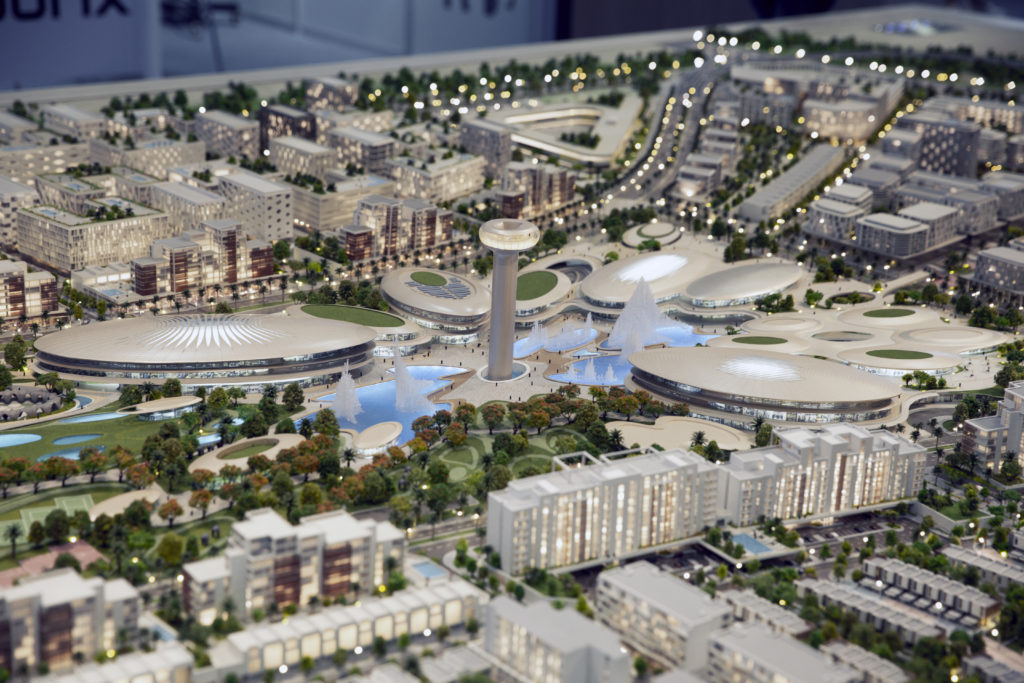
How much of Aljada has been sold?
Since launching Aljada in September 2017, Arada has released three phases: First Avenue, East Village and the Nest student housing community, which was launched in March this year. As of the end of August, we have sold over 75% of all units released in these phases, a figure that amounts to well over 3,500 units.
We consider this to be an excellent result, considering the current state of play in the regional real estate market. The numbers are also testament to the strength of Sharjah’s real estate market, which has not seen the sorts of fluctuations that other markets have seen in recent years. In fact, we have achieved our two highest-performing sales months ever in the year so far, in March and June.
At Cityscape this year, we also launched a new community in Aljada, called The Boulevard. Featuring around 600 units in total, The Boulevard apartments are spread across three nine-story blocks situated right on Aljada’s main retail thoroughfare.
What are the sustainability initiatives at Aljada and what effect will they have on the project’s residents?
We see the issues of smart technology and sustainability has being entirely complementary. Smart city solutions tend to be sustainable by nature, and sustainable elements in our projects are often improved immeasurably through the addition of smart technology.
This is especially true when it comes to Aljada, where the size and the greenfield nature of the plot make this an ideal location to create a smart and sustainable city that can be a model for the rest of the region. Our own research, conducted before the launch of Aljada, showed us that there was clear and consistent interest in the concept of smart homes and smart communities. Among the merits that were shared with us included: time saving, better security and safety (especially for children); efficiency; lower costs; the opportunity to customise and the ability to be eco-friendly.
For Aljada to function as a true city of the future, we need to be able to attract not just the current generation but future generations as well. Smart technology infused through every aspect of Aljada will make residents lives easier, save them money, and boost their wellbeing.
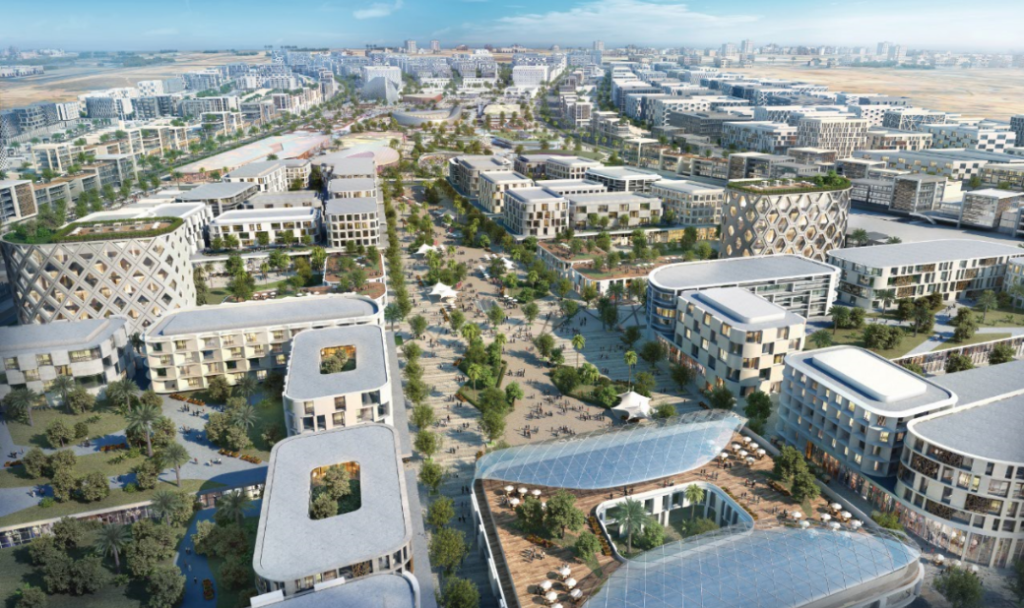
The first step is to ensure that we can implement next-generation and ultra-secure 5G digital infrastructure, which we see as the backbone of Aljada. Once that is in place, we can then focus on the other four key areas that we have earmarked at Aljada: mobility, utilities, the ‘circular economy’ and waste management. So in each of these areas, technology implemented throughout the project will make life more convenient for residents, while saving time and also supporting the environment.
Sustainability and the use of smart technology form a major part of our vision; we take them seriously not only because it is good for the environment and for our customers, but because they are good for business too.
How about progress at Nasma Residences?
From a sales perspective, we are now over 80% sold at Nasma Residences, which is just under 1,000 townhouses and villas in total. We started handing over homes in the first phase in May this year and are on track to complete the entire project at the end of the second quarter of 2020.
What’s the outlook for the property market in the UAE?
It has not been the easiest couple of years for many property markets in the Gulf. This has been down to a number of reasons, but primary amongst these are the supply-and-demand situation, a slowdown in government spending, a sluggish economy and the knock-on effects on consumer spending.
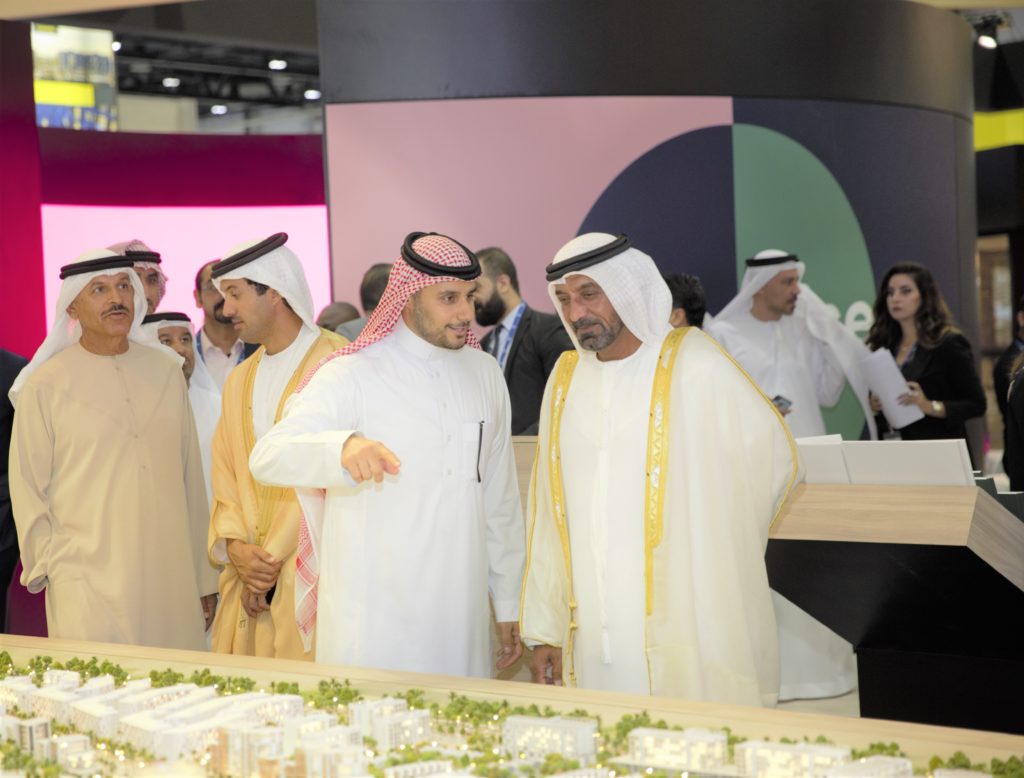
There are, however, reasons for optimism. While some markets appear to be temporarily oversaturated, other markets are performing well. Sharjah, the market in which we operate, saw a far greater value of real estate transactions in the first half compared to the same period in 2018. Values have remained comparatively stable. Elsewhere, there are huge opportunities available in Saudi Arabia for developers with the skills and experience to meet the demands of a young and fast-growing population there.
In Dubai, I believe that a number of initiatives have the potential to reinvigorate the property sector. The introduction of a higher committee to regulate supply and demand and oversee urban planning is a huge step in the right direction. More people will visit the UAE next year than ever before when Expo comes to town, creating a unique opportunity for the real estate industry. We believe that, in part thanks to these initiatives, overall values will stabilise next year, before growing again at a more gradual rate. The reality is that the UAE is still an incredibly dynamic property market, and one that still offers yields to investors that are among the highest anywhere in the world.
What do you make of the new Higher Committee in Dubai to regulate the property sector there?
The announcement of a new committee to streamline development in Dubai is incredibly positive one. It is yet another sign of maturity in a property market that has served as a bedrock for the local economy for many years. Furthermore, it is also critical that in a market where the supply-and-demand situation is already a matter of concern that only projects that have the right scope and quality are allowed to proceed.
We are yet to understand exactly what the full mandate of the committee will be, but any initiative that brings developers and the government closer together will only help streamline processes, improve urban planning and create even better opportunities for buyers, tenants and visitors.
As a developer with ambitions to enter the Dubai market in the future, this is exactly the sort of message that we want to hear. I also believe that other developers, both locally and internationally, will also be encouraged by this news, which will result in greater foreign direct investment into Dubai over the long term.
What impact with Expo 2020 have on the real estate market?
Expo 2020 will be a landmark moment for the UAE as a whole, and it will be a time when the spotlight of the world will be on our country. At Arada, we believe that the impact of the event will be positive for every industry not just real estate, and not just during Expo but for a long time afterwards as well.
We’ve already seen reports from the likes of EY, saying that the event will have contributed over AED120 billion in value for the local economy by 2031. The expected influx of tourists to the UAE, as well as the investment in infrastructure and the creation of new jobs to service this event will all boost the economy, and more than 80% of the site is expected to be reused or recycled after the event is completed.
With regard to the property market specifically, it is critical that we take advantage of Expo 2020. More visitors will be travelling to the UAE than ever before next year, and this provides Arada with a unique opportunity to introduce ourselves to a wider audience from a branding and sales perspective.
How would you describe the prospects for Sharjah’s property market?
There’s no doubt that the property market has seen a difficult period in some parts of the Gulf. However, Sharjah is a unique market and has seen far fewer price fluctuations than other locations over the course of the last decade. Demand from Sharjah property has remained strong, and much of that credit has to go to the Government, which took a landmark decision to allow all nationalities to purchase real estate in the Emirate in 2014, and to allow all nationalities to buy property without a residency visa last year.
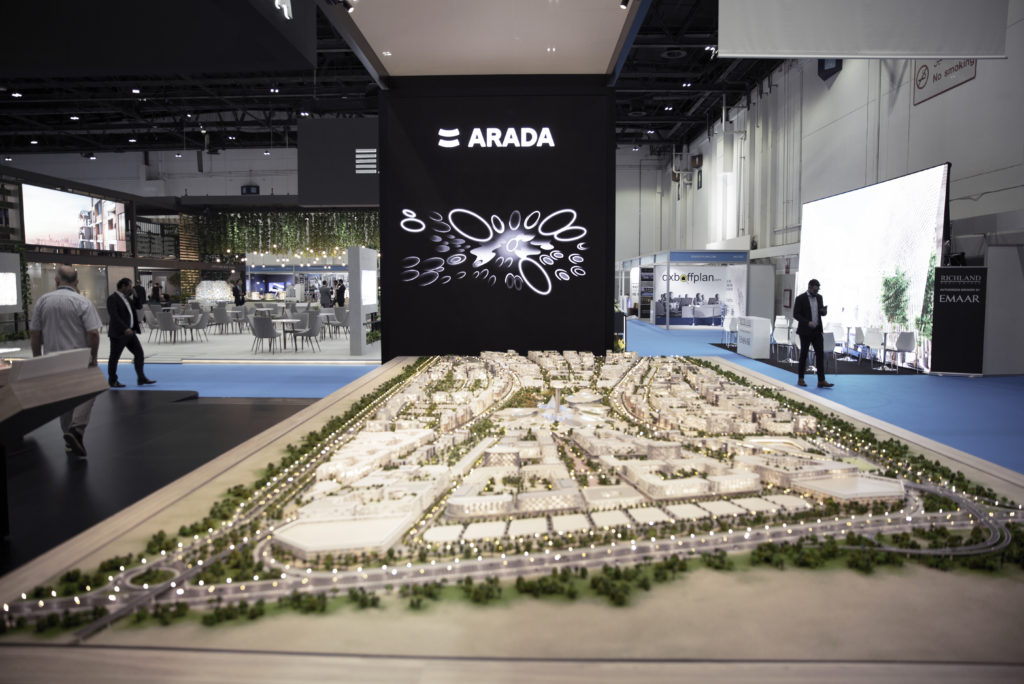
Evidence that demand remains strong comes from official statistics. In June, Sharjah Real Estate Registration Department, the government regulator, announced that AED14.7 billion had been invested in local property in the first half of 2019. This figure is already 65% of the total value of transactions for the whole of 2018, which proves that demand in Sharjah remains robust. Indeed, the highest number of transactions in Sharjah has come in the Muwaileh area, where our project Aljada is based.
From our own experience, I can say that the first half of this year has seen our two highest-performing sales months ever, in March and June. We have achieved those results by listening to our buyers, tailoring our products to the needs of our consumers and providing real estate investment opportunities that we don’t believe can be found anywhere else in the Gulf.
We’ve seen lots of developers offer direct financing schemes and generous post-completion payment plans to buyers – where does Arada stand on this?
There has certainly been an increase in developers offering generous financing schemes, some stretching to many years after the project has been completed. Naturally, this can be linked to oversupply in some sections of the market, which is forcing some companies to provide ever sweeter deals in order to meet sales targets. However, this in turn results in smaller margins for the developer, potentially making it tougher for them to complete the project.
Buyers will obviously find these payment plans attractive, but they should ensure that the developer with which they are investing has an excellent track record of delivery, and that their payments are being placed in escrow.
My own personal take on this is that developers are not banks and should not act like them. As yet, Arada has not offered post-handover plans, but we do provide guaranteed return on investment over a number of years at our student housing community, Nest, which has resulted in extremely strong sales for us since we launched in March.

